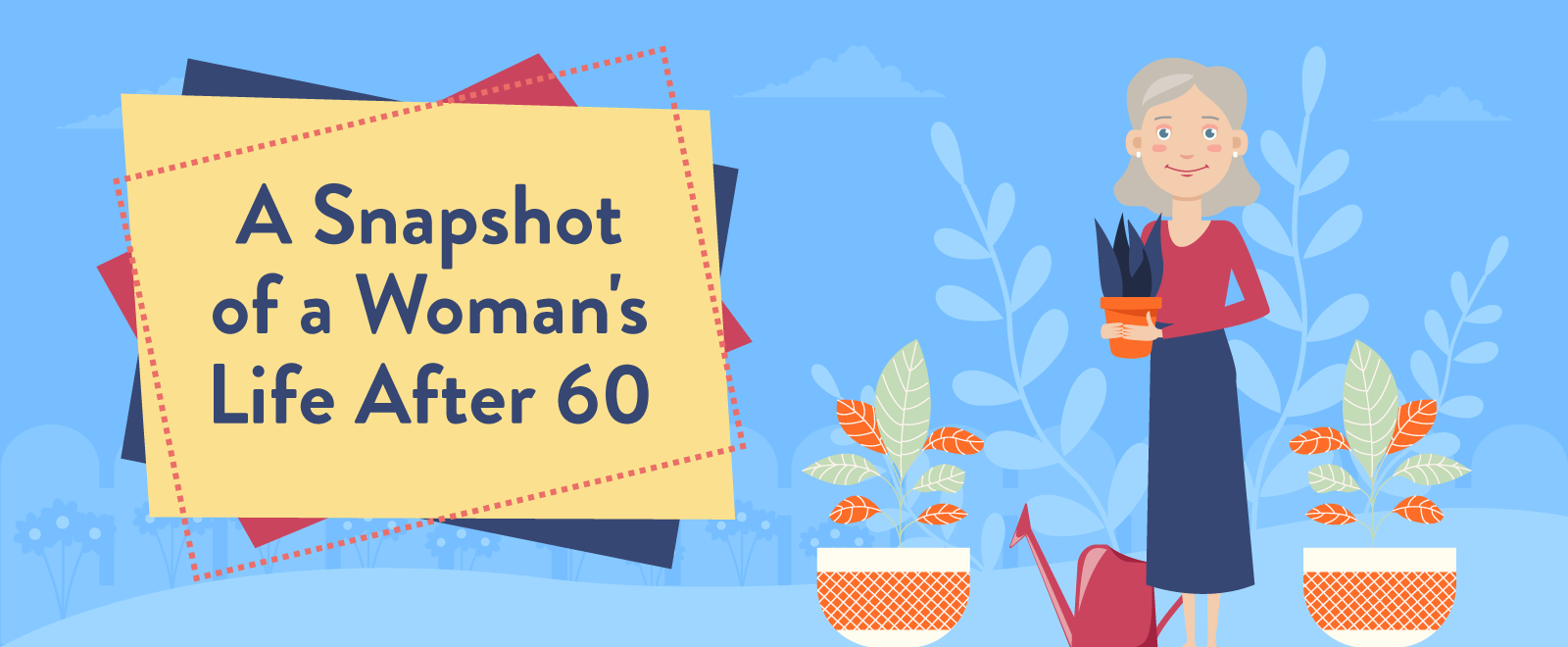This infographic and case study is part of our Women’s Month series this March! You can check out the previous case studies in the series – 7 Infographics to Celebrate International Women’s Day and What Makes Baby Boomer Women Buy (An Infographic)
Spanish conquistador Juan Ponce de Leon may have failed in his quest for the exact location of the Fountain of Youth, but humanity didn’t give up and invented modern medicine and better public health initiatives. As a result, there has been a rise in life expectancy rates around the world, particularly for women over 60.
Why start at 60?
Because it seems like the consensus as to when a person becomes old is around this age. A Pew Research Center Survey found out that public perception of when one gets old hovers around 68 on average.
A Look at Women Over 60: A Data Visualization Case Study
Our resident data scientist and designers worked together to find out more about this specific demographic and what their lives are like. After sifting through volumes of data, we present our findings in an infographic below!
How Long Will You Live If You’re a Woman Over 60
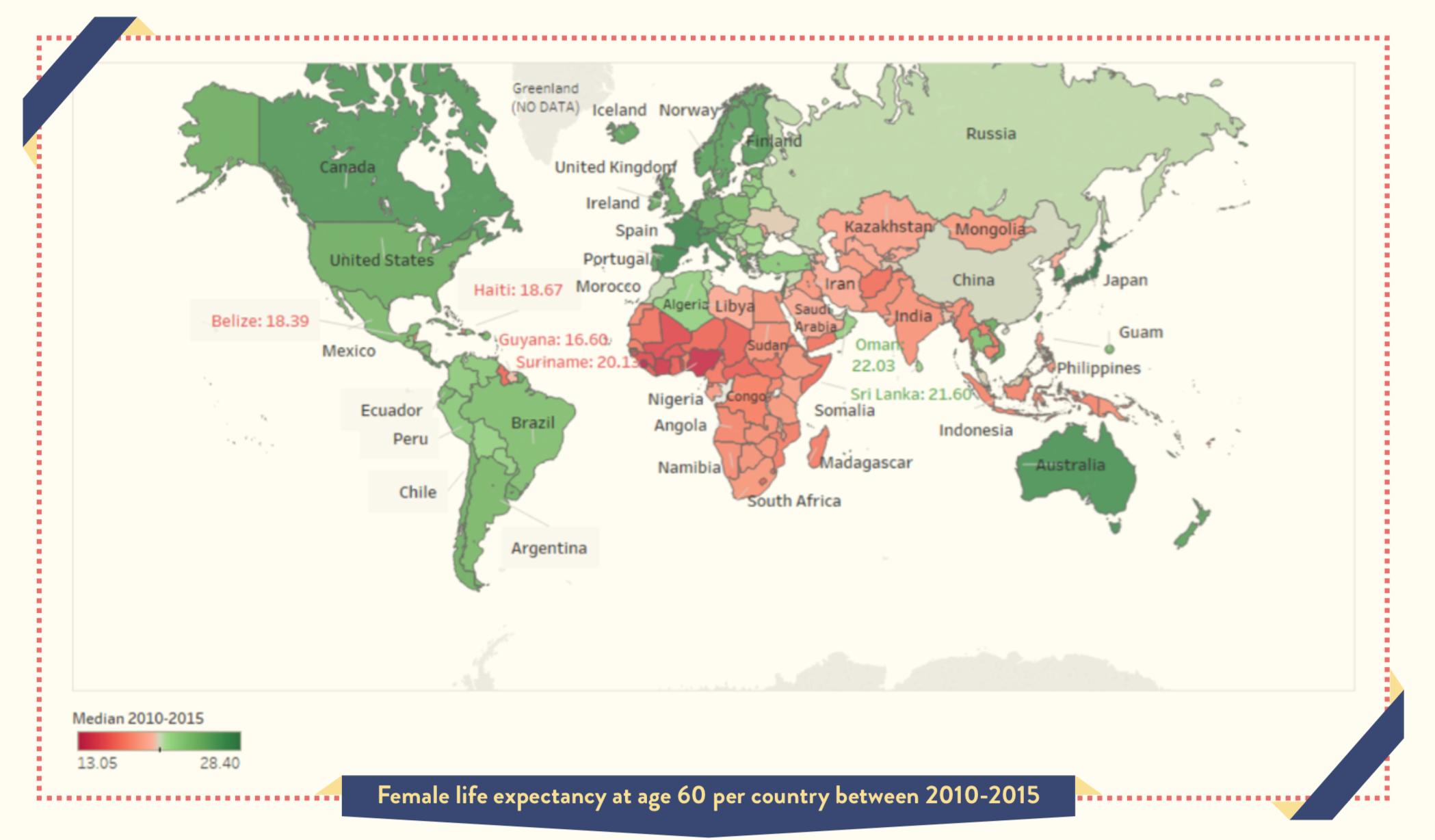
Female life expectancy after 60 is the number of remaining years of life expected of women who are alive at age 60, and who would be subject to the mortality rates of the given period during the remaining years of their lives.
From 1950 to 2015, the life expectancy advantage in women after 60 is considerably more significant in the more developed regions than in less developed countries.
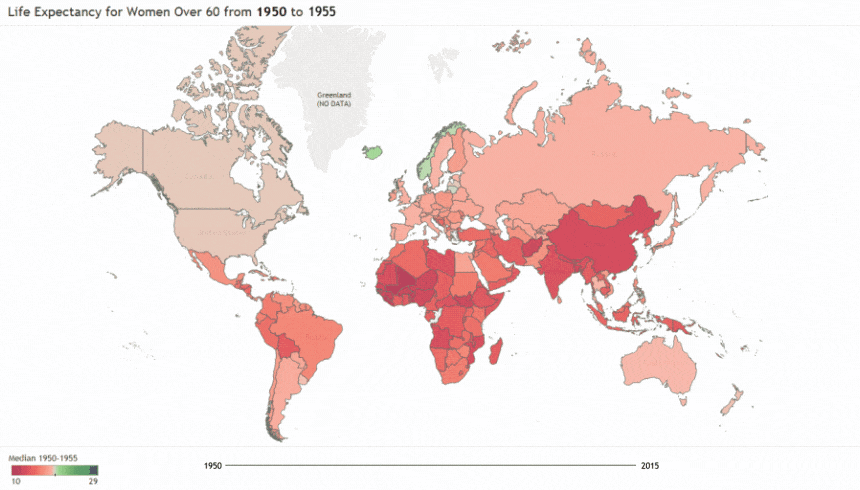
For example, the average life expectancy for women in Hong Kong is 88 years old.
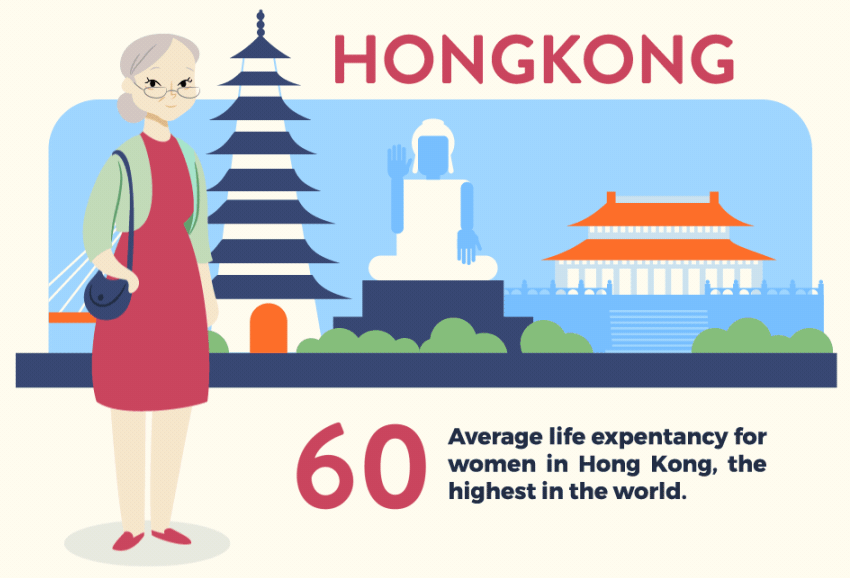
Life after 60: Living Alone But Not Lonely
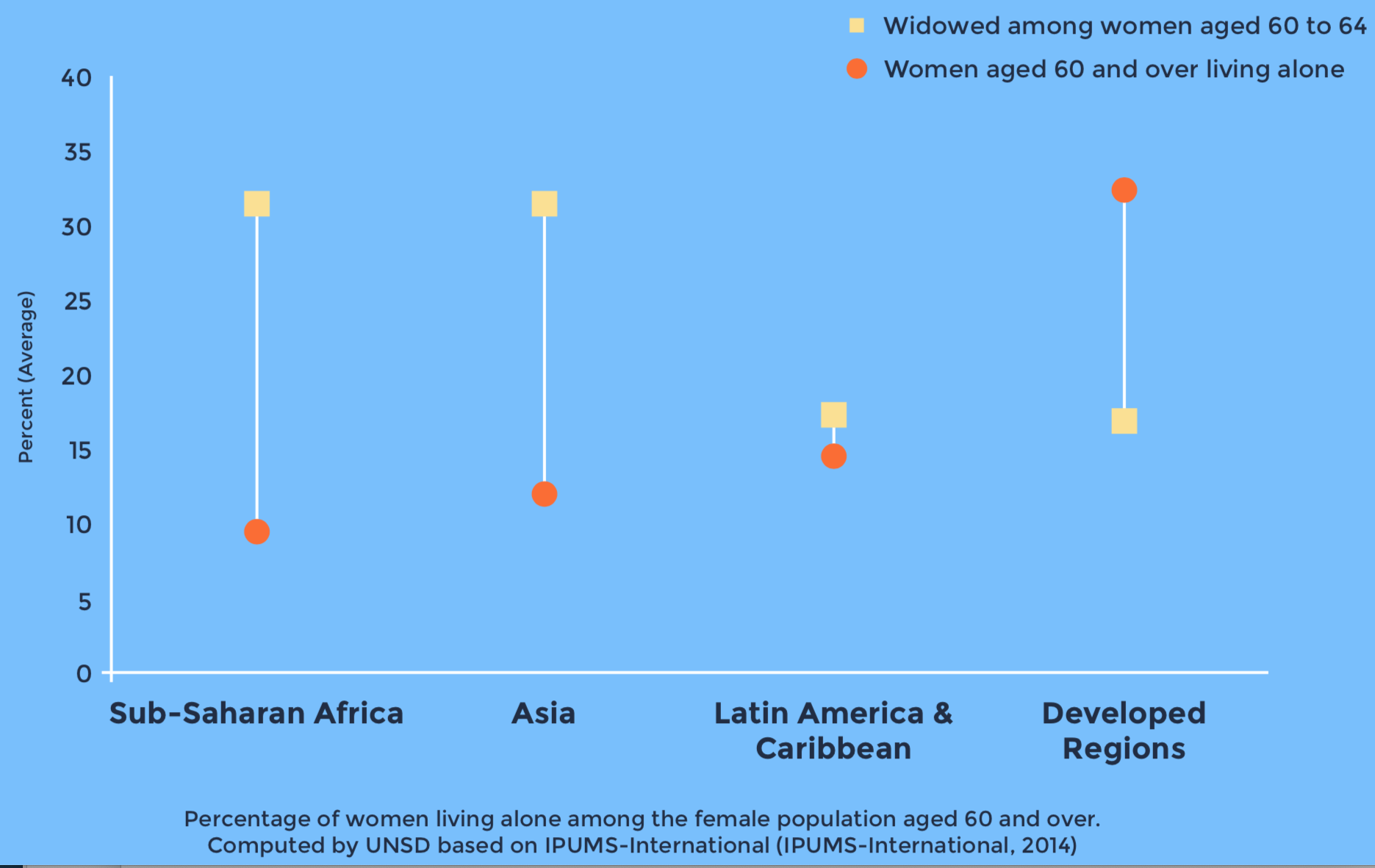
Women over 60 in developed regions are more likely to live alone than their counterparts in Asia, Africa, and Latin America. However, women over 60 in the latter regions are more likely to be widowed than women over 60 in developed countries. This is partly due to the rising life expectancy among men in developed nations. It’s too early to tell though that rising life expectancy rates in men will translate to fewer women living alone or better support systems for women.
However, living alone doesn’t seem to stop women over 60 (in the US) in feeling content and blessed.
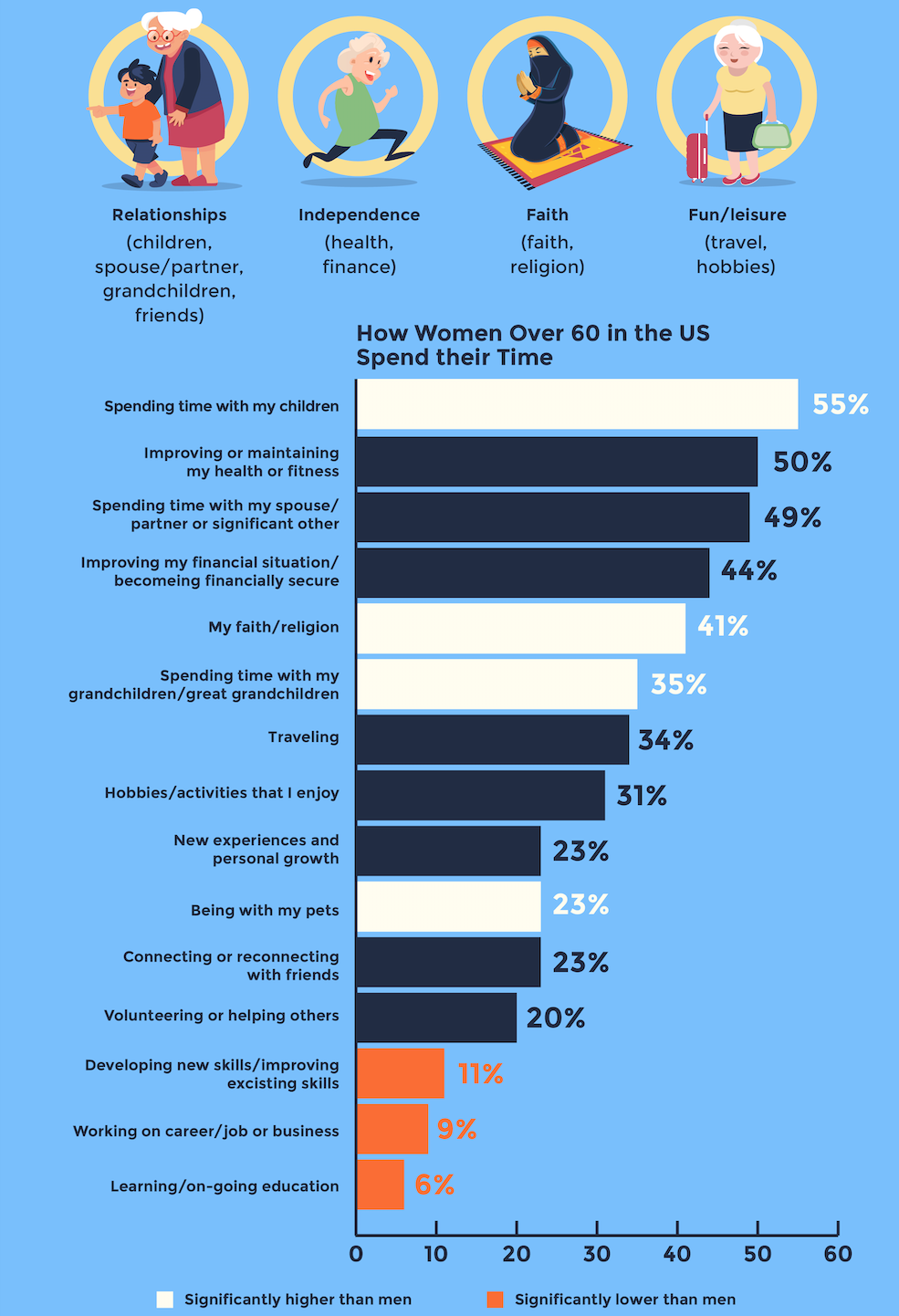
Nurturing relationships, improving their health/financial status, embracing religion/faith, and engaging in leisure/fun activities are the top reasons why women over 60 are feeling content and blessed despite living on their own or widowhood after 60.
Embracing Senior Women in the Workplace (U.S. Only)
An important consequence of longer life expectancy of women is the need to finance their added retirement years. As a result, more senior women are holding on to their jobs a little longer.
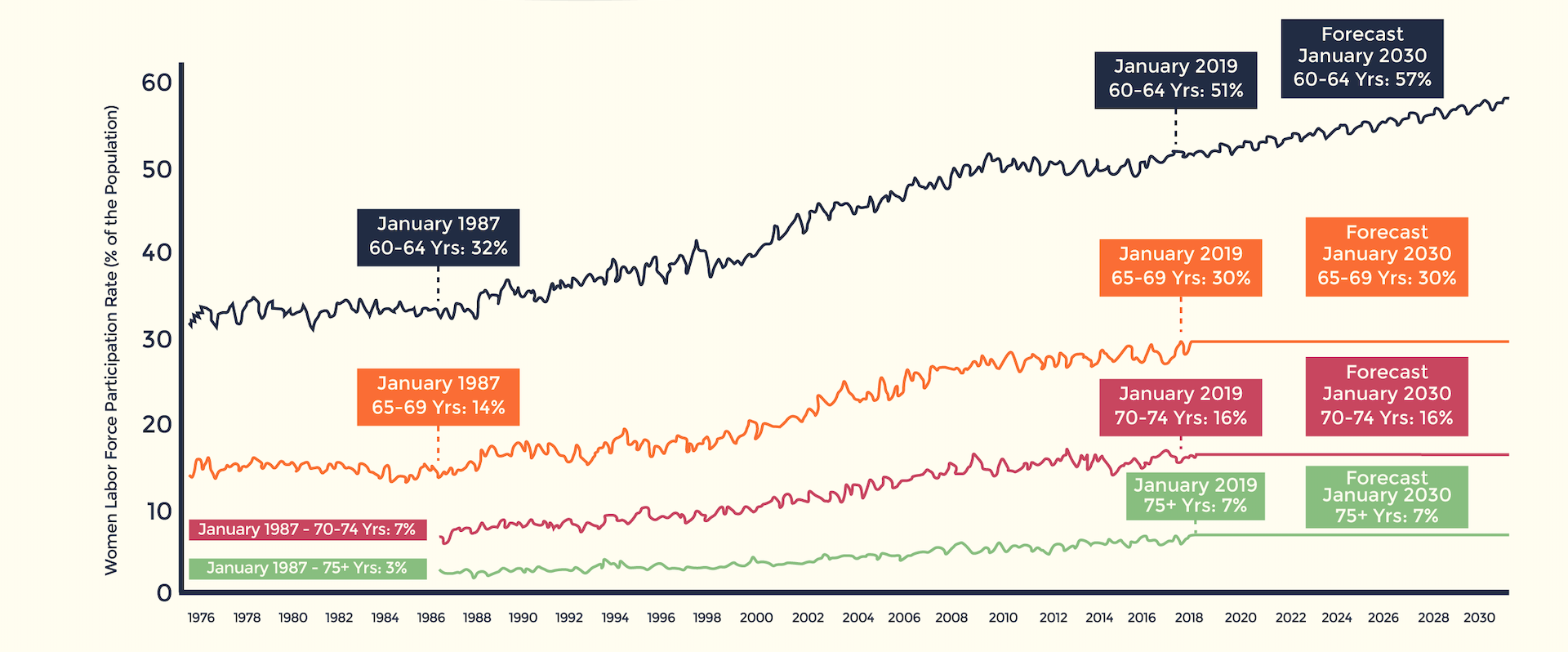
For the last three decades (1987 to 2019), there’s been a rise in labor force participation in women over 60.
As indicated in the graph, the 2019 figures exceeded the 1987 numbers by a considerable margin for women between 60-64 years of age — from 32 percent to 51 percent. However, it’s worth noting that the rising trend will likely slow down (particularly for women who are 60-64 years of age) and is expected to plateau in the next decade for women beyond 65 years of age.
Over to You
Are you a woman over 60? Or do you know someone who belongs in this demographic? Do you agree with these findings? Why or why not? We’d love to hear your thoughts through Twitter or Facebook.
Feel free to use the infographic or let our design service team make one for you. We will be also be uploading this infographic in our template library so you can reuse it asap!
